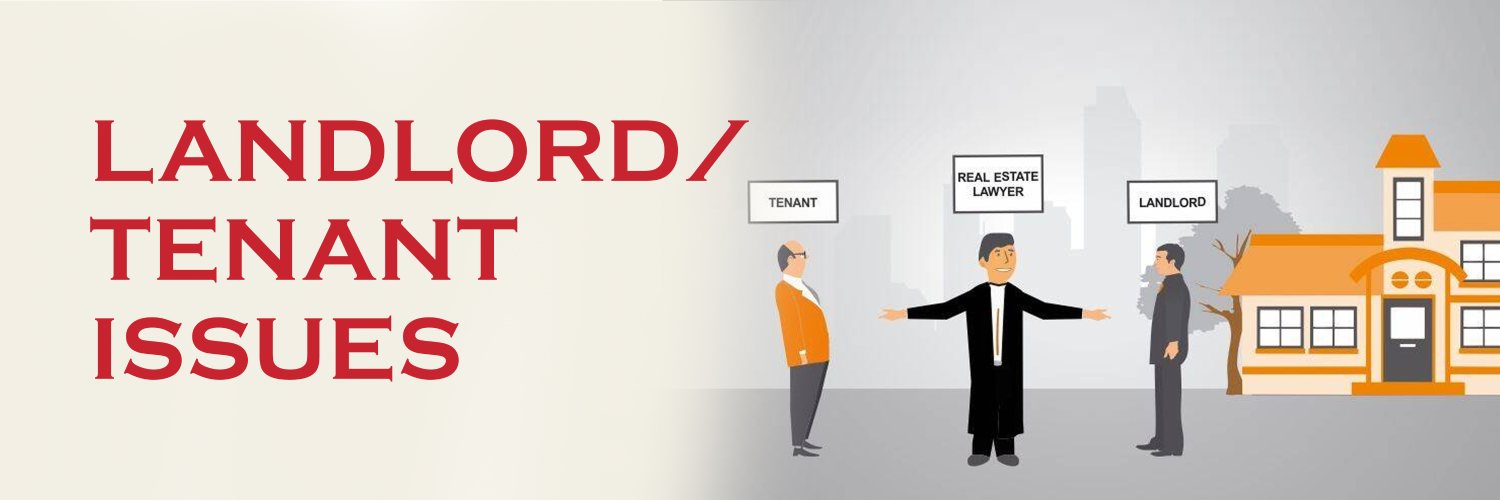Tenant vs. Landlord: When to Hire a Lawyer for Tenant Rights
Renting a home should be a smooth process, but conflicts between tenants and landlords are common. Disputes over security deposits, repairs, eviction notices, and lease violations can quickly escalate. While some issues can be resolved through communication, others may require legal intervention. Knowing when to hire a Lawyer for tenant rights can help tenants protect their rights and avoid costly mistakes.
This guide explores key scenarios where hiring a tenant lawyer is necessary, ensuring renters make informed decisions when facing legal disputes with landlords.
Understanding Tenant Rights
Tenant rights vary by state and country, but they typically include:
- The right to a habitable living environment
- Protection against wrongful eviction
- Privacy rights
- Fair housing laws protection
- Return of security deposits within a reasonable timeframe
- The right to challenge unfair rent increases
When landlords violate these rights, tenants may need legal assistance to hold them accountable.
Situations Where a Tenant Should Hire a Lawyer
1. Unlawful Evictions
Landlords must follow legal procedures before evicting a tenant. This includes providing proper notice and having a valid reason for eviction, such as non-payment of rent or lease violations. If a tenant faces:
- An eviction without notice
- Retaliatory eviction (for reporting a landlord’s misconduct)
- Eviction due to discrimination
A lawyer can challenge the eviction in court and protect the tenant’s housing rights.
2. Security Deposit Disputes
Many tenants struggle to get their security deposits back after moving out. Some landlords unfairly withhold part or all of the deposit without justification. Common disputes include:
- Unjustified deductions for damages
- Failure to return the deposit within the legal timeframe
- Lack of proper documentation for deductions
A tenant lawyer can help recover the deposit and even secure additional compensation if the landlord acted in bad faith.
3. Unsafe or Uninhabitable Living Conditions
Landlords must maintain rental properties in livable conditions. Issues such as mold, pest infestations, plumbing failures, or lack of heating can make a home unsafe. If a landlord refuses to address these problems, tenants may have legal grounds to:
- Withhold rent (where permitted by law)
- Request repairs through a court order
- Seek compensation for health-related damages
A tenant lawyer can guide renters through legal processes to ensure their living conditions are improved.
4. Retaliation for Asserting Tenant Rights
If a tenant complains about unsafe conditions or reports a landlord’s violation to housing authorities, some landlords may retaliate with increased rent, eviction threats, or harassment. Many jurisdictions have anti-retaliation laws protecting tenants from such behavior. Hiring a lawyer can help tenants file complaints and hold landlords accountable for illegal retaliation.
5. Discrimination in Housing
The Fair Housing Act prohibits landlords from discriminating based on race, gender, religion, disability, family status, or national origin. If a tenant experiences:
- Refusal to rent based on discriminatory reasons
- Unequal lease terms compared to other tenants
- Harassment due to their protected status
A tenant lawyer can file a complaint with the U.S. Department of Housing and Urban Development (HUD) or take legal action against the landlord.
6. Lease Agreement Disputes
Lease agreements outline the rights and responsibilities of both landlords and tenants. Disputes arise when:
- Lease terms are unclear or unfair
- The landlord tries to change lease terms without proper notice
- The lease includes illegal clauses
A lawyer can review the lease, negotiate terms, and challenge unfair provisions on behalf of the tenant.
7. Wrongful Rent Increases
Rent control laws exist in some states and cities to prevent excessive rent hikes. If a landlord raises the rent unfairly or without proper notice, tenants may have legal options to contest the increase. A lawyer can determine if the increase violates rent control laws and help tenants challenge it.
When Not to Hire a Lawyer
Not all tenant-landlord disputes require a lawyer. In minor cases, tenants can try:
- Communicating directly with the landlord
- Using mediation services
- Contacting local tenant advocacy groups
However, if the issue involves legal violations, financial losses, or risks of eviction, hiring a lawyer is the best course of action.
How to Find the Right Tenant Lawyer
If you need legal representation, consider the following tips:
- Research tenant lawyers: Look for specialists in landlord-tenant law with good reviews.
- Check local legal aid: Low-income tenants may qualify for free legal services.
- Ask for referrals: Friends or tenant advocacy groups can recommend experienced attorneys.
- Schedule a consultation: Many lawyers offer free consultations to discuss case viability.
Conclusion
Landlord tenant attorney or disputes can be challenging, but knowing your rights and when to seek legal help is crucial. If you face eviction, discrimination, unsafe living conditions, or lease violations, a tenant lawyer can protect your interests and help you navigate legal complexities. Taking action at the right time ensures that renters are not taken advantage of and can enjoy a fair and safe housing experience.














Post Comment